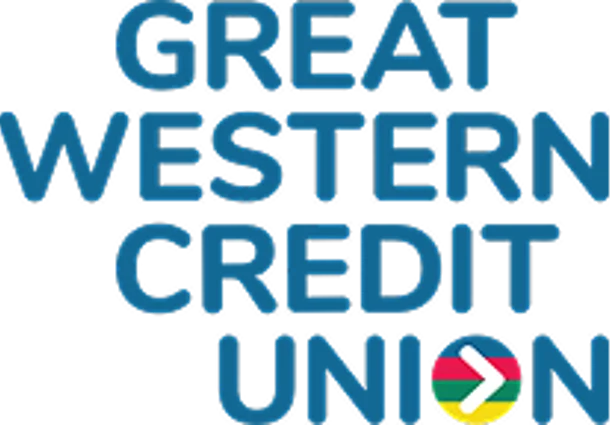Cost of living crisis accelerated illegal money lending

There’s no doubt that the cost of living crisis has seen more people turning away, or being turned away, from traditional money lending services. New research by IPSOS for Fair4All Finance has found that more than three million people in the UK have borrowed from either unlicensed or unauthorised money lenders, also known as loan sharks, in the past three years.
These illegal lenders tend to offer loans to their victims in the hundreds of pounds, rather than the thousands. But with interest rates typically around double the amount loaned, and often shrouded in a lack of transparency, many who borrow from these sources are unaware of just how much they are faced with paying back.
In this article, we explore the recent rise of illegal money lending and what is being done to combat it.
Who is most affected by loan sharks?
While the IPSOS research highlights that loans from unlicensed vendors are filling a growing credit vacuum for lower-income borrowers, many of those who have turned to loan sharks in recent years are actually earning between £20,000 and £25,000 per year – so not in the lowest income bracket.
Sacha Romanovitch OBE, CEO of Fair4All Finance, said:
“Our research suggests illegal lenders are flourishing in the credit vacuum left by the departure of high cost yet regulated lenders. The unintended consequence is that millions of people who can well afford to repay a fair loan are left with fewer safe options.”
This increases the cycle of debt and means that more and more people are at risk of financial exclusion. Since 2.8 million households have been turned down by mainstream, licensed lenders in the two years between 2021 and 2023, it’s easy to understand why there can be a sense of resignation around the reality of turning to a loan shark in times of need.
What’s more, the fear of high-interest rates may put people off traditional money lenders, instead leading them towards illegal lenders.
One article by The Conversation found that these lenders are often known by the borrower, and set up ‘informal’ repayment schemes that are untenable for the borrower. Further research from the Illegal Money Lending Team discovered that 56% of victims fell prey to someone they previously considered a friend, whilst 10% had met them in their place of work. This means that anyone is at risk of being scammed by loan sharks if the signs are not clear.
What is being done to stop illegal lending?
While illegal money lending is not a new phenomenon, the recent spike in households falling prey to those that lend without official regulation means that more and more people need support. Not just as they face the challenge of paying back these debts without transparent information about their interest rates or the amount owed, but also as they may face threats of violence that so often form an implicit or explicit part of the debt-collecting practices of these illegal lenders.
Though their business is against the law, the IPSOS research found that only 1% of borrowers affected ever report their situation to the authorities, perhaps due to fear of repercussions, the nature of their borrowing, or other circumstances.
This is why independent organisations, like The England Illegal Money Lending Team, also known as Stop Loan Sharks, exist. Originally set up in 2004, the team supports victims of loan sharks and investigates and prosecutes illegal money lenders. Another helpful resource is the Financial Conduct Authority’s Financial Services Register, which allows people to learn what lenders are regulated to do and the consumer protections that apply when doing business with them. If they are not listed, they are very unlikely to be authorised to offer loans.
Even with this support, it is obvious that more education is needed to help people spot the signs of illegal lending and loan scams before it’s too late, as well as to provide people with access to genuinely affordable and responsible alternative providers.
How credit unions can help
Credit unions are regulated and safe spaces for people to access affordable credit, as and when they need it. Where high street banks might decline loans for lower-income households that do not have a good enough credit rating, credit unions offer a responsible alternative source of lending, though, of course, they won’t lend where people’s ability to repay is in question. That leads to a broader point about the need for sustainable incomes of course, which need to be (but are too often not) sufficient to meet peoples’ needs, whether in work, out-of-work or unable to work.
Here at Great Western Credit Union, we provide fair, affordable and ethical services to over 18,000 people across the South West. In our Social Impact Report, we found that over 1,100 loans were granted to low-income households and borrowers in areas facing some of the worst deprivation in 2022. Compared to high-cost lenders, this helped to save them over £500,000 in interest repayments. In addition, our employer partnership scheme, Money@Work, provides fair financial services to tens of thousands of employees across the South West. With repayments being made directly from their payroll, employers can help to secure the financial wellbeing of their workforce.
The biggest challenge for credit unions and other responsible lenders such as CDFIs is to scale sufficiently to meet demand, something that Great Western Credit Union has been working towards over the last few years, investing in our new digital platform, tripling the number of potential members and increasing awareness of services across the South West.
Our recent Bond Offer*, which closed on 18th July, allowed investors to support us in continuing to build greater access to purpose-driven finance to help families struggling with the cost of living crisis. Providing them with this regulated and caring financial alternative promotes their long-term financial well-being and can help keep low incomes households out of the debt cycle.
To learn more about our services, please email us and our support teams will be available to help.
*As capital invested is not protected by the Financial Services Compensation Scheme, any money invested is at risk.
